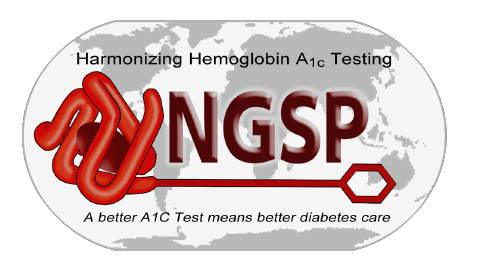NGSP annual certification for the sixth time
Author: Laboratorio Clínico Hematológico
Publication date: 01/25/2023

1. ¿What is the NGSP?
2. ¿What do you mean by standardization?
3. ¿What does the NGSP program consist of?
The program consists of a network of reference laboratories that are part of and authorized by the NGSP, whose method of measuring glycated hemoglobin is adjusted to the international studies mentioned (DCCT and the UKPDS), which are responsible for monitoring the individual participating laboratories, such as ours.
What they do is process a series of fresh blood samples, with which they establish the initial glycated hemoglobin data for standardization (calibration) of methods and assays for comparison of results. These same samples are then sent for processing in our laboratory with the analytical equipment and glycated hemoglobin measurement method that we routinely use for testing our patients.
Once processed, the results are sent to the NGSP to be verified and assessed by members of the program. Once it is confirmed that our results for glycated hemoglobin are concordant with those of the reference laboratory, that is, that they are within the parameters established by the program, the Traceability Certificate is issued.
4. ¿What certification did Hematológico receive from the NGSP and why is it important?
The NGSP offers three types of certification to those laboratories that successfully complete the evaluation process: method certification, level I laboratory certification and level II laboratory certification. This is done on an annual basis, specifically for the reagents and instruments used for Hb1Ac titration in submitted samples. For level I laboratories, a quarterly monitoring is also performed, which allows a quick detection of eventual difficulties with the test.
At Hematológico, our Hb1Ac titration technique has met the NGSP evaluation criteria to achieve certification for traceability and as a level I laboratory for the study of diabetes for the sixth year in a row. This is a very important certification for us because it indicates that our results are comparable, reproducible and give us accurate information on the risk of complications in patients with diabetes.
It is a source of pride for all of us to have obtained this certification in the 2022-2023 period, as it is the result of the joint work of the entire team involved in the process, the bacteriologists, the quality assurance coordination and the laboratory coordination.
At the Laboratorio Clínico Hematológico.
In Colombia, Hematológico was the first laboratory in Colombia to be part of the NGSP program and to receive the level I certification. Thanks to this, we can provide our physicians and patients with glycated hemoglobin results with maximum reliability for the study and follow-up of diabetes. Currently, only two laboratories in the country have this level of certification, so we congratulate all those who are part of this process and invite them to continue working to provide quality services, humanized and supported by a high level team.
Learn more about the medical utility of the glycated hemoglobin test byclicking here.



